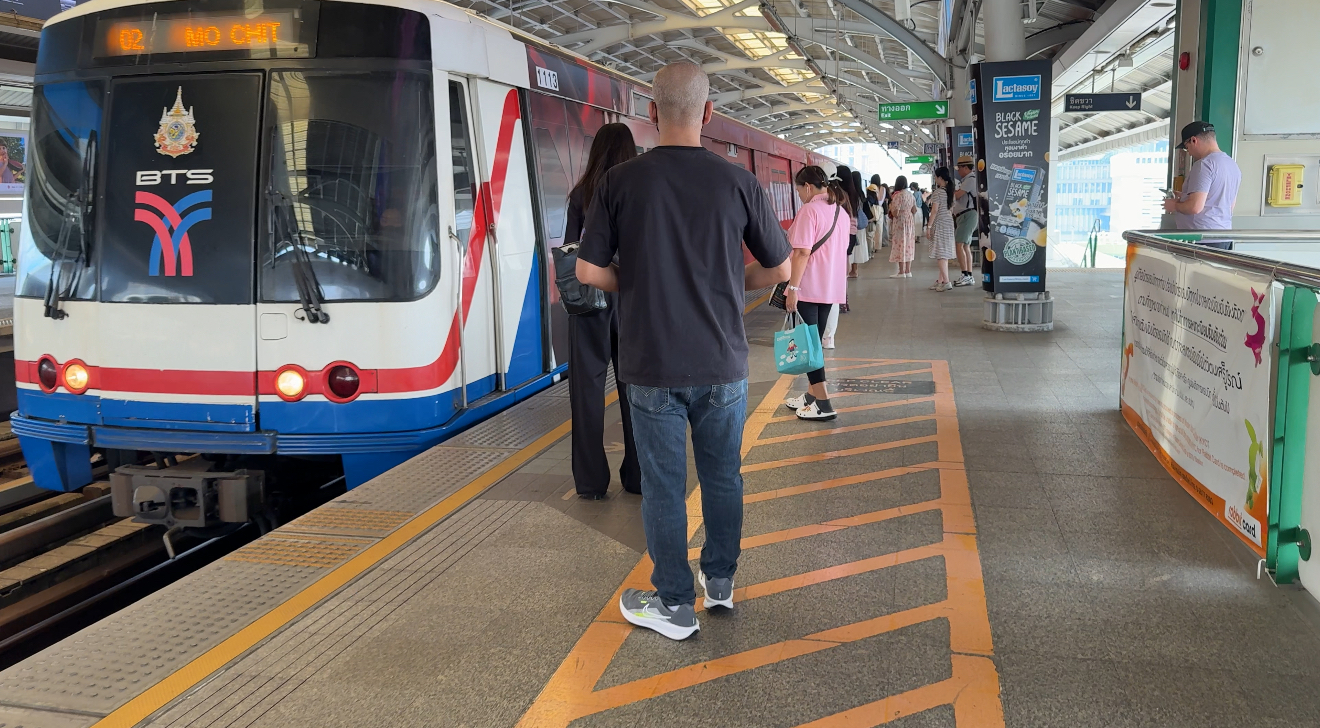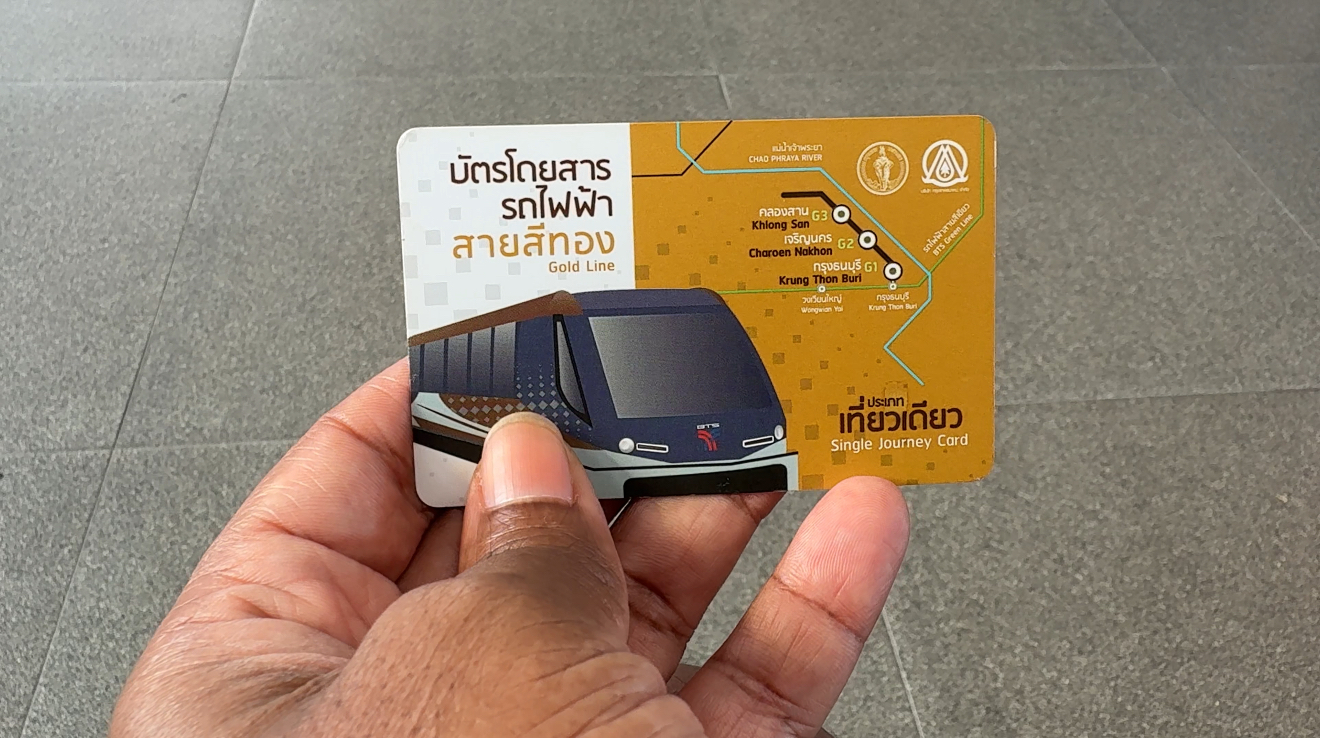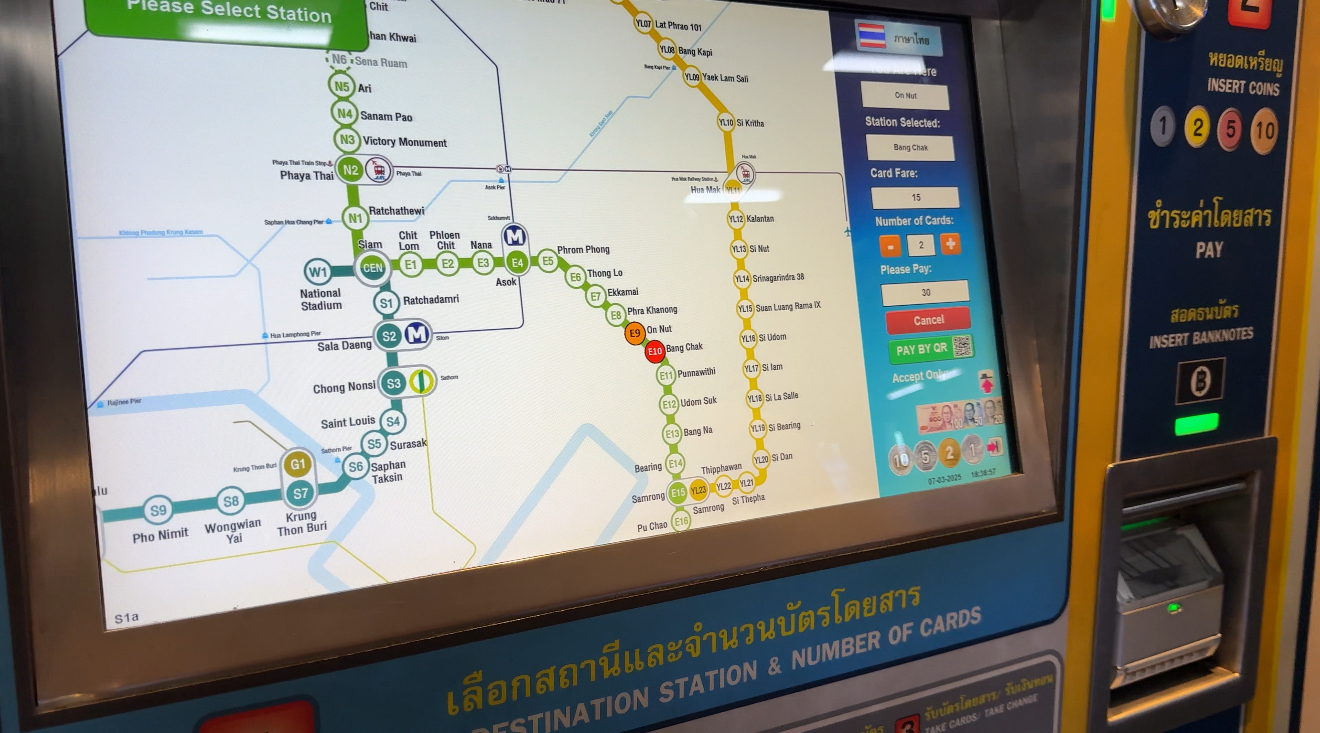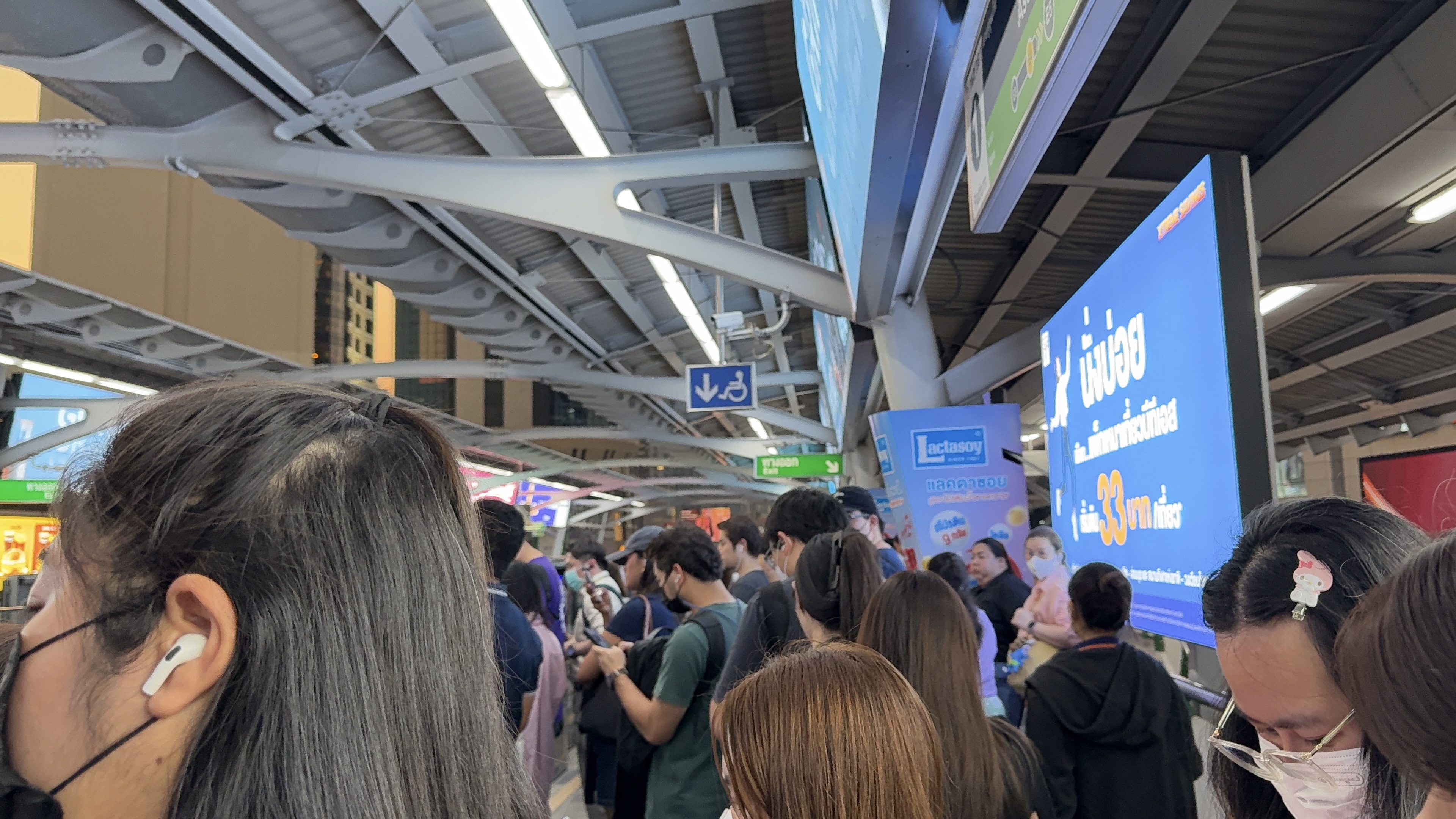(photo credit @bkktransit)
If you’ve spent even one day in Bangkok, you already know the traffic can be a beast. It doesn’t matter if it’s 9am on a Tuesday or 9pm on a Sunday, cars barely crawl, motorbikes weave through packed lanes, and grabbing a Grab during rush hour can feel like an Olympic event. That’s why the BTS Skytrain and MRT Subway are not just convenient, they’re essential. I use both almost every single day, whether I’m heading to a café in Thonglor, hopping over to Chatuchak Market, or meeting friends near the river. The system is clean, reliable, air-conditioned (a lifesaver), and best of all, completely unaffected by the chaos happening on the streets below.
If you’re planning to stay in Bangkok longer-term or even just for a few weeks, here’s a serious tip: make sure your condo or Airbnb is near a BTS or MRT station. It will completely change the quality of your life here. Being walking distance to a station means you’re instantly connected to the city, no waiting in traffic, no long detours, just smooth, fast, efficient travel. It’s the difference between a frustrating, exhausting day and a breezy one. Trust me, Bangkok feels a lot more livable when your front door is steps away from the Skytrain or Subway.
Navigating Bangkok's bustling streets can be daunting, but the city's BTS Skytrain and MRT Subway systems offer efficient and affordable alternatives. Whether you're a tourist exploring the city's landmarks or a local commuting daily, understanding these transit systems can enhance your experience.

BTS Skytrain
The BTS Skytrain is an elevated rail system comprising two main lines:
-
Sukhumvit Line: Runs from Khu Khot to Kheha, passing through key areas like Mo Chit, Siam, and Asok.
-
Silom Line: Extends from National Stadium to Bang Wa, connecting areas such as Siam, Chong Nonsi, and Surasak.
Operating daily from 6:00 AM to midnight, trains arrive every 3–6 minutes during peak hours and every 5–10 minutes during off-peak times.
MRT Subway
The MRT system includes the Blue and Purple Lines:
-
Blue Line: Forms a loop around central Bangkok, linking Hua Lamphong, Sukhumvit, and Bang Sue.
-
Purple Line: Connects Tao Poon to Khlong Bang Phai, serving the northern suburbs.
MRT trains also operate from 6:00 AM to midnight, with similar frequency to the BTS.
Ticketing and Fares
BTS Skytrain
-
Single Journey Tickets: Priced between 17–62 THB, depending on distance.
-
One-Day Pass: Unlimited rides for 150 THB, ideal for tourists planning multiple trips in a day.
-
Rabbit Card: A rechargeable smart card costing 200 THB (100 THB for the card and 100 THB initial credit). It offers convenience for frequent travelers and can be used for payments at various retailers.
MRT Subway
-
Single Journey Tokens: Fares range from 17–45 THB, based on distance.
-
Stored Value Cards: Available for regular commuters, offering discounted fares and ease of use.
Upcoming Fare Changes
The Thai government plans to implement a flat fare of 20 THB across all electric train lines in Bangkok by September 2025 for Thai nationals. Currently, this fare applies to the MRT Purple Line and the SRT Red Line, aiming to make public transportation more accessible and reduce living costs.
Tips for Travelers
-
Avoid Peak Hours: Traveling between 10:00 AM–4:00 PM or after 7:30 PM can help you avoid crowded trains.
-
Use Stored Value Cards: Rabbit Cards for BTS and similar cards for MRT save time and often offer fare discounts.
-
Plan Your Route: Utilize official transit maps and apps to plan your journey efficiently.
Bangkok's BTS and MRT systems provide reliable and cost-effective transportation options. With upcoming fare reductions and continued expansions, navigating the city is set to become even more convenient for residents and visitors alike.




